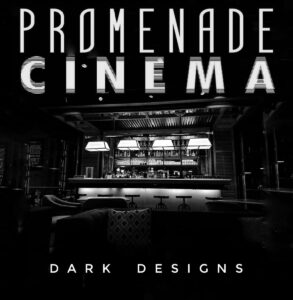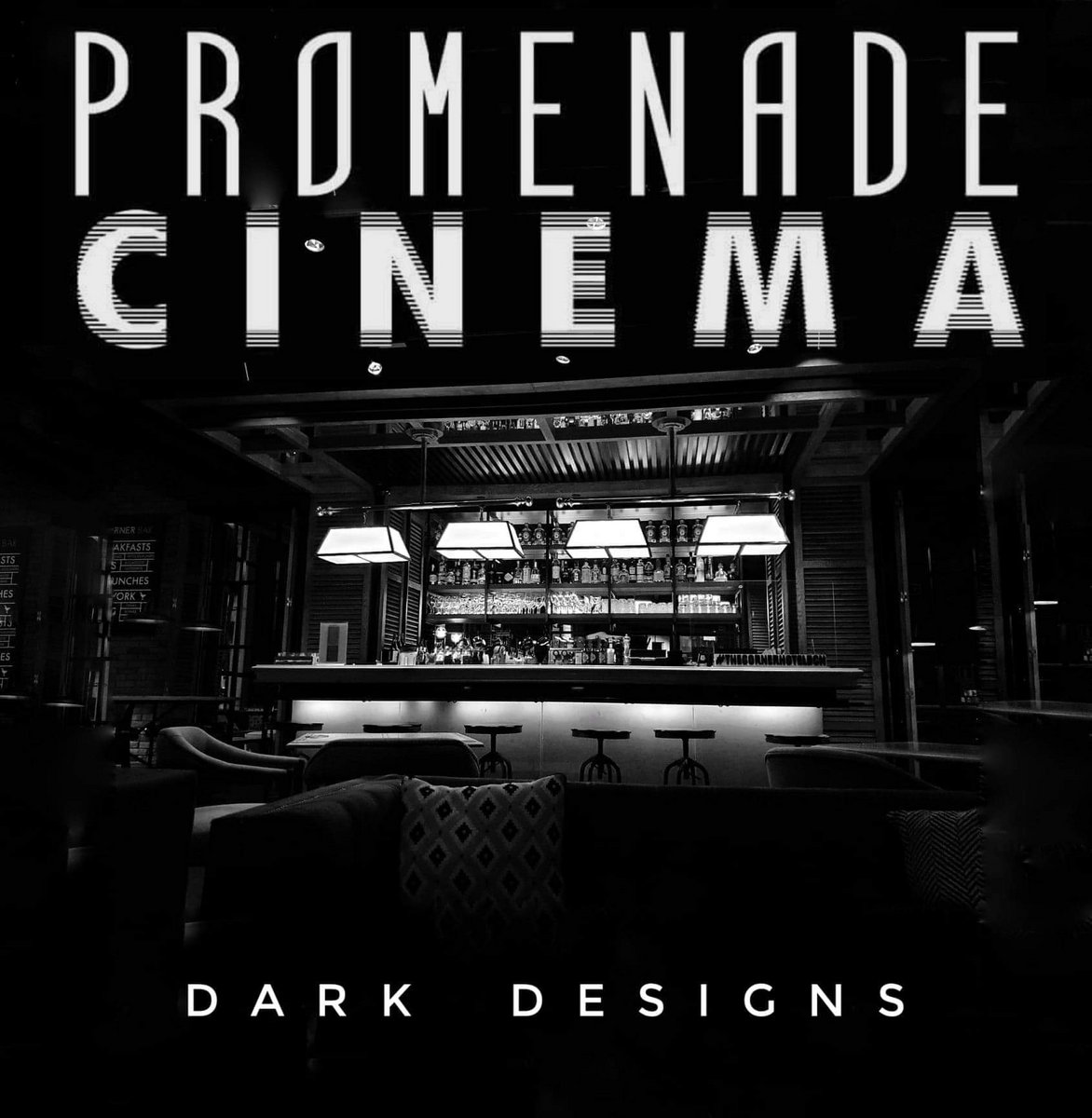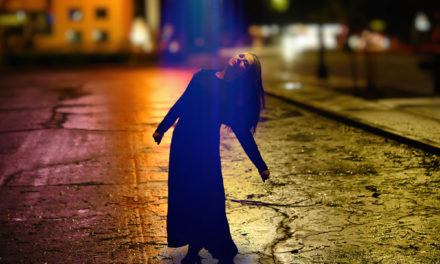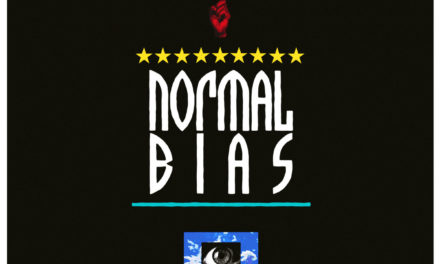
Promenade Cinema
Dark Designs
self-released
British duo Promenade Cinema inhabit an interesting place in the modern darkwave landscape; with the evolution of the genre over the last decade frequently intersecting with classic body music and broader synth sounds, there’s something specifically charming about the English duo’s work in a style that hails from the trad goth-industrial club format. That is to say that their new release Dark Designs has an almost quaint adherence to millennial goth club sounds, where EBM, industrial, synthpop and darkwave were all often indistinguishable aside from whatever genre a band self-applied.
If that sounds like a knock against Promenade Cinema, then it’s only for lack of context. There’s a distinct likeability to the four originals included on the release, born from the poised vocal presence of singer Emma Barson and the dreamy wonder of the songs. Indeed, one of the first points of comparison that leaps to mind in terms of mood (if not instrumentation) is the dark fairytale mode of The Birthday Massacre. “Spellbound” specifically captures that specific sense of fantasy through its twinkling lead and minor key progression, with Barson’s strong, controlled delivery keeping the song anchored lest it drift off into pure reverie. It pairs wonderfully with the piano-inflected “On Video”, its lyrical pop-horror narrative given a nostalgic sheen that might have ended up cloying if it wasn’t attached to a well constructed and confidently performed structure.
That might actually be the secret to Promenade Cinema’s success; for all the fanciful imagery and wistfulness they deal it, they keep don’t skimp on the songcraft. See the wonderfully catchy “To Synchronize No More”, a number that effectively layers hazy synth pads over tightly sequenced synthlines and drums, punching the song’s hook from the dreamy intro through its verses and choruses and big showy climax. There’s something almost formal in the band’s application of proven compositional practices, but the natural progression of a song like opener “Vanish” with the introduction of each layer and shift from section to section feeling like the right and obvious choice without also seeming rote.
Perhaps the weakest aspect of Dark Designs is its inclusion of a number of remixes and instrumental versions that dilute the original material to various degrees. The former is easily the worse offender in that regard with some dated and clunky club bids that step on the appeal of the songs to varying degrees, although the vocal-less versions do highlight how much of the band’s allure comes direct from Emma Barson’s elegant presence. If nothing else the bonus tracks recall a time when a surfeit of alternate versions was de rigeur for singles and EPs, and in that sense adds somewhat to the throwback charm of the whole affair, a not inconsiderable part of what makes it a fun listen for genre fans.





